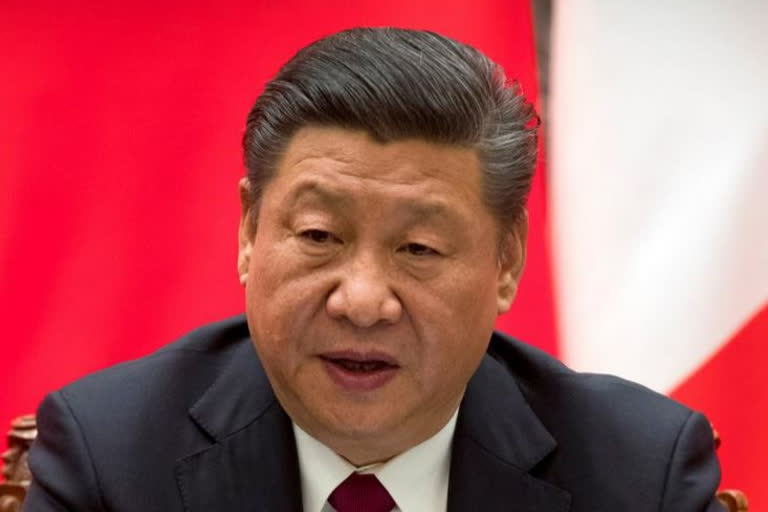Wuhan: President Xi Jinping on Tuesday said that China was in a struggle against a "demon" epidemic, as the death toll from the new SARS-like virus soared to 106 and the first cases of human-to-human contagion were detected abroad.
Xi made his remarks during talks with the head of the World Health Organization in Beijing as a host of nations prepared to airlift their citizens from Wuhan, the epicentre of the outbreak.
"Chinese people are currently engaged in a serious struggle against an epidemic of a new type of coronavirus infection," Xi told WHO chief Tedros Adhanom Ghebreyesus.
"The epidemic is a demon, and we cannot let this demon hide," the Chinese leader said, pledging that the government would be transparent and release information on the virus in a "timely" manner.
His comments came after anger simmered on Chinese social media over the handling of the health emergency by local officials in central Hubei province, where the disease first emerged in December.
Some experts have praised Beijing for being more reactive and open about this virus compared to its handling of the Severe Acute Respiratory Syndrome (SARS) epidemic of 2002-2003.
But others say local cadres had earlier been more focused on projecting stability than responding to the outbreak when it began to spread earlier this month.
Since then, the number of cases has soared -- doubling to more than 4,500 in the past 24 hours.
WHO chief Tedros praised China's response to the crisis during a meeting with Foreign Minister Wang Yi, according to state news agency Xinhua.
The WHO last week stopped short of declaring the outbreak a global emergency, which could have prompted a more aggressive international response such as travel restrictions.
But global concern has been growing, with Japan and Germany on Tuesday reporting the first human-to-human infections outside China.
Until now, all cases in more than a dozen countries involved people who had been in or around Wuhan.
In Japan, a man in his sixties contracted the virus apparently after driving two groups of tourists from the city earlier in January, the health ministry said. He was hospitalised with flu-like symptoms on Saturday.
On the other side of the world, a 33-year-old German man caught the disease off a Chinese colleague from Shanghai who visited Germany last week, according to health officials.
The development came after countries including Sri Lanka, Malaysia and the Philippines announced tighter visa restrictions for people coming from China.
Read also: Sri Lanka confirms first case of coronavirus
Experts believe that the virus came from a wild animal market in Wuhan and then jumped to humans, with Chinese health officials saying on Tuesday that people infect each other through sneezing or coughing, and possibly through contact.
Authorities initially sealed off Wuhan and other cities in Hubei province late last week, trapping more than 50 million people.
Read also: Coronavirus: The spread of life taking virus in numbers
China then halted international and domestic group tours. It also imposed a wide range of travel restrictions inside the country, suspending long-distance bus routes and more than 2,000 train services.
But with the death toll climbing and more fatalities reported in Chinese cities far away from Wuhan, authorities on Tuesday urged people to delay any foreign travel "to protect the health and safety of Chinese and foreign people", the National Immigration Administration said.
Wuhan, meanwhile, has been turned into a near ghost-town under a lockdown that has largely confined the industrial hub's 11 million people to their homes.
With a ban on car traffic, the streets were nearly deserted apart from the occasional ambulance -- although the city's hospitals are overwhelmed.
With inputs from PTI



